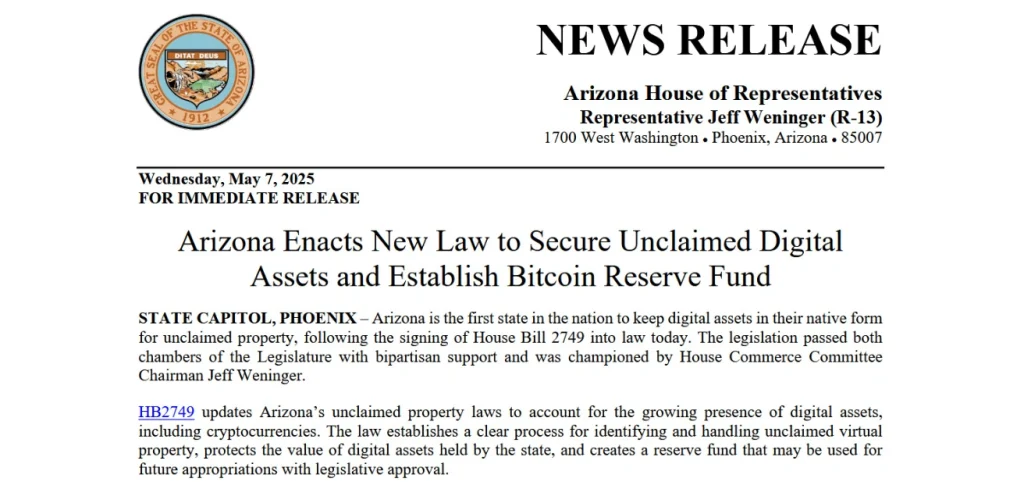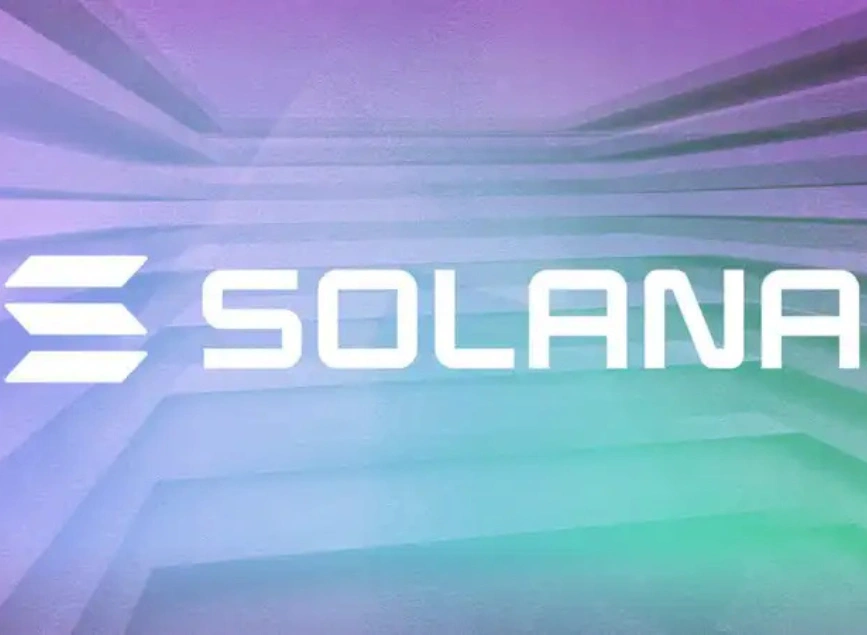
Arizona Passes Law to Claim Abandoned Cryptocurrencies
On May 7, 2025, Arizona Governor Katie Hobbs signed a new law allowing the state government to claim ownership of cryptocurrencies that have been abandoned for more than three years. This legislation, part of House Bill 2749, sets the foundation for creating a Bitcoin and Digital Asset Reserve Fund, without using taxpayer money or the public budget.
Key Details of HB 2749
| Clause | Description |
|---|---|
| Law Topic | Claiming digital assets abandoned for 3+ years with no response from owners |
| Executive Tool | Establishment of a “Bitcoin and Digital Asset Reserve Fund” |
| Permitted Functions | Staking crypto, receiving airdrops, and allocating rewards |
| Funding Source | No use of public or taxpayer funds |
| Stated Objective | Professionally managing unused digital assets for the benefit of the state |
Educational Section: What Is an Abandoned Digital Asset?
An abandoned digital asset refers to cryptocurrencies, tokens, or similar holdings that have been left unused for an extended period—at least three years under this law—where the owner has not responded to identification attempts or account activity prompts.

🔍 Why Does This Matter?
- Millions of dollars in crypto are stored in wallets where keys are lost or owners are unreachable.
- Some states and countries are seeking legal frameworks to recover or manage such dormant assets.
- Laws like this aim to balance individual property rights with the economic value of unused assets.
Impact Analysis: Markets, State Policy, and Crypto’s Legal Status
The approval of HB 2749 marks Arizona’s entry into proactive digital asset regulation. The law positions the state as a pioneer in managing unclaimed cryptocurrencies.
Allowing the state to stake crypto assets and participate in airdrops introduces a new model of non-tax revenue and could reshape how governments manage digital assets.
However, it also raises concerns about property rights and may require further alignment with federal legal principles and the development of transparent notification protocols for rightful owners.
This move follows Governor Hobbs’ veto on May 3 of a similar bill that would have allowed investing public funds in Bitcoin, signaling her preference for low-risk crypto strategies without public budget exposure.
It may also pave the way for bills like SB 1373, which would allow the state treasury to invest up to 10% of its budget stabilization fund in Bitcoin.
Read More: BTC/USD: Complete Guide to Bitcoin vs US Dollar Analysis
Summary: Opportunities and Risks
Opportunities:
- Unlocking idle crypto assets as a new source of income
- Setting a precedent for other U.S. states or global governments
- Creating a crypto reserve fund without taxpayer burden
Risks:
- Legal challenges around proving “abandonment”
- Privacy advocates’ concerns about the state accessing inactive wallets
- Potential public dissatisfaction if owners aren’t properly notified
Final Thoughts
Arizona’s move could be the beginning of a new wave of digital asset legislation, especially at the state level, as the U.S. continues to search for a balance between innovation and user rights protection in the crypto space.
Share
Hot topics

Best broker for gold trading
There’s always been a certain magic about gold. Before online charts and trading applications, people stored their wealth in coins and bars, trusting that gold would retain its value during...
Read more




Submit comment
Your email address will not be published. Required fields are marked *